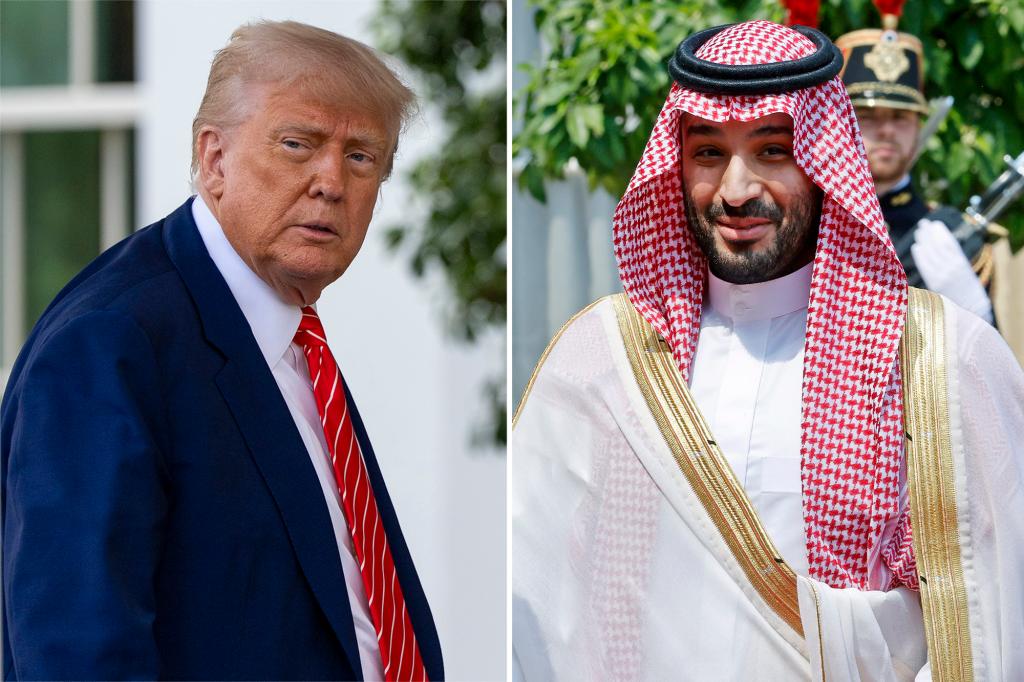Trump’s Middle East Mission: A New Era of Business Deals and Investments
Former U.S. President Donald Trump has embarked on a high-stakes trip to the Middle East, aiming to secure major investments for American businesses and strengthen economic ties with key regional allies. The visit, which began this week, focuses on Saudi Arabia, the United Arab Emirates, and Israel, where Trump plans to leverage his longstanding relationships to broker deals in energy, technology, and infrastructure. Analysts suggest this mission could redefine U.S. economic engagement in the region while sparking debates about the role of private diplomacy in foreign policy.
Strategic Objectives Behind the Trip
Trump’s itinerary underscores a deliberate strategy to capitalize on his rapport with Middle Eastern leaders, many of whom maintained close ties during his presidency. Key objectives include:
- Energy Partnerships: Negotiating oil and gas agreements to stabilize U.S. energy markets and reduce reliance on adversarial suppliers.
- Technology Transfers: Promoting U.S. tech firms in sectors like AI and cybersecurity, where Gulf states are heavily investing.
- Infrastructure Projects: Pushing for American involvement in NEOM and other megaprojects under Saudi Arabia’s Vision 2030.
“This isn’t just about deals—it’s about positioning the U.S. as the region’s preferred economic ally amid growing competition from China and Russia,” said Mark Harrison, a geopolitical analyst at the Brookings Institution. “Trump’s relationships here are a unique asset, but critics question whether private interests align with national priorities.”
Economic Implications for the U.S. and Middle East
The potential economic windfall is substantial. Saudi Arabia alone has pledged $1 trillion in infrastructure spending by 2030, while the UAE’s sovereign wealth funds manage over $1.3 trillion in assets. Trump’s delegation includes CEOs from defense, finance, and energy sectors, signaling a push for multibillion-dollar contracts.
However, the trip has drawn mixed reactions. Proponents argue that private-sector diplomacy can accelerate job growth and innovation. “American businesses stand to gain enormously from unfettered access to these markets,” noted Rebecca Carter, an international trade expert. Critics, though, warn of risks: “Over-reliance on autocratic regimes for investment could compromise U.S. values on human rights and transparency,” countered Rep. Alexandria Ocasio-Cortez in a recent statement.
Political and Diplomatic Ramifications
Beyond economics, the visit carries diplomatic weight. Trump’s involvement in Middle East policy—including the Abraham Accords—has been both praised and polarizing. Some regional experts suggest his return could sideline current U.S. administration efforts. “This blurs the line between official and unofficial foreign policy,” said Dr. Faisal Al-Mutar of the Middle East Institute. “It may empower regional actors to play negotiators against each other.”
Meanwhile, Israel watches closely. Trump’s scheduled meetings with Prime Minister Netanyahu aim to reinforce security and tech collaborations, but could also stir tensions over West Bank settlements and Iran policy.
Future Outlook: What Success Would Look Like
If successful, this mission could:
- Generate thousands of U.S. jobs through export opportunities
- Strengthen the dollar’s dominance in Middle East transactions
- Set precedents for post-presidential economic diplomacy
Yet challenges persist, from navigating OPEC+ dynamics to addressing congressional scrutiny over foreign influence. The coming weeks will reveal whether Trump’s venture marks a turning point or a flash in the pan.
For further analysis on U.S.-Middle East relations, subscribe to our geopolitical newsletter or attend our upcoming webinar featuring regional experts.
See more Business Focus Insider Team

